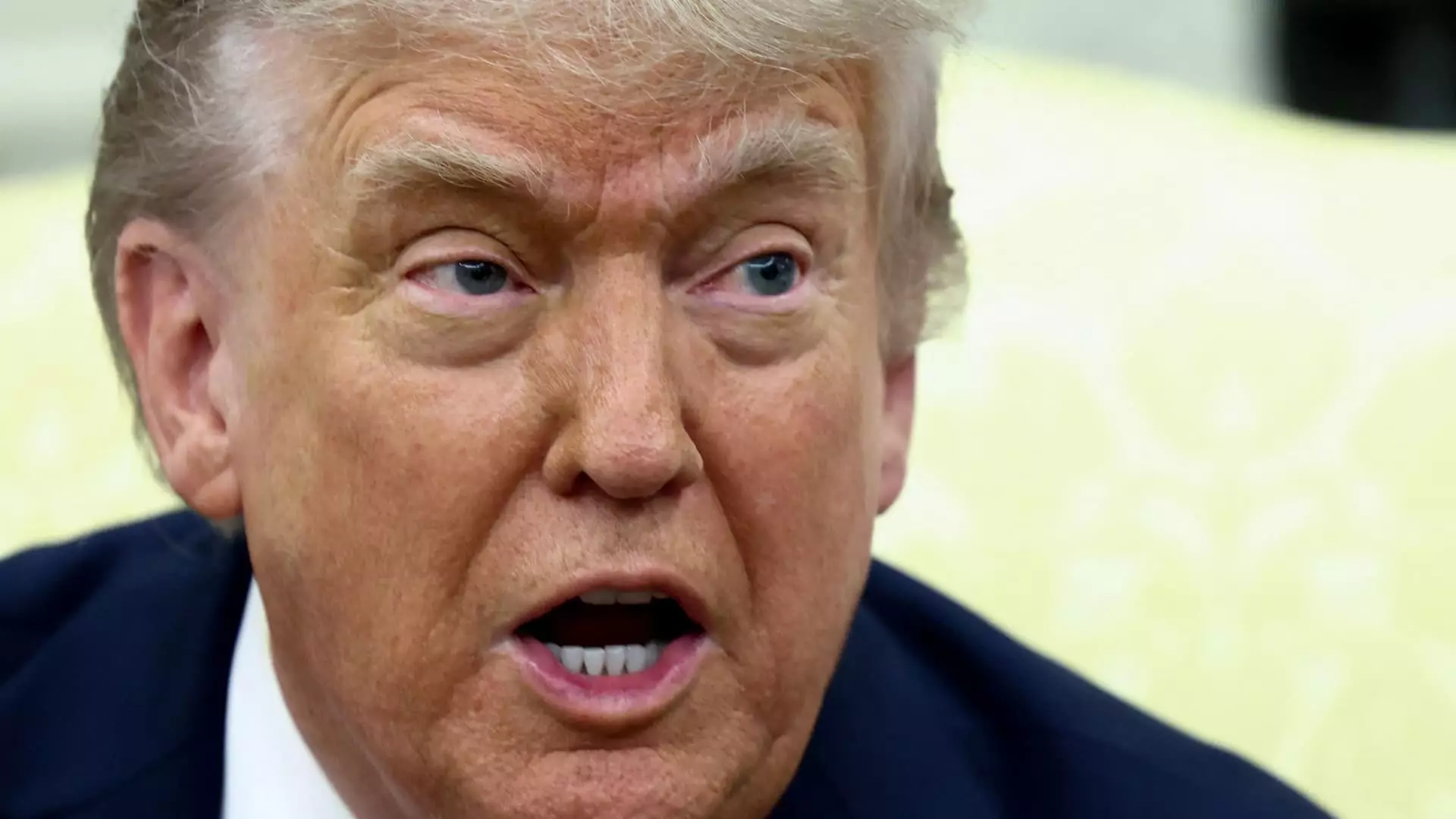In an age characterized by corporate giants wielding influence on an unprecedented scale, the power dynamics between government and business leaders are not merely transactional—they are fiercely combative. The recent exchange between President Donald Trump and tech mogul Elon Musk encapsulates this bitter struggle. Their conflict is emblematic of a broader discourse where economic policies, particularly those concerning environmental sustainability and technological innovation, collide with personal ambitions and the fallout of egos that dominate the political landscape.
Expectations were high for Trump’s proposed tax bill, dubbed the “One, Big, Beautiful Bill,” which aimed to reshape the federal financial structure significantly. Rather than being the game-changer he had promoted, the bill has accelerated a rapid deterioration of relations with influential figures like Musk, whose ventures play a critical role in advancing green technologies. Trump’s casual dismissal of Musk’s political and industrial contributions betrays a fundamental misunderstanding of how aggressively innovation-driven industries require support and partnership with the government. The elimination of electric vehicle credits as part of this tax overhaul is not just an economic decision; it’s a strategic misstep that could lead to far-reaching implications for sustainability efforts.
The Backlash of Betrayal
Musk’s swift indictment of Trump’s bill as a “disgusting abomination” speaks volumes about the disenchantment brewing between them. Once allies thriving on mutual benefit, their paths appear irreversibly diverged. Initially, Trump lauded Musk’s contributions, specifically highlighting his status as a major financial supporter during the lead-up to the 2024 campaign. However, the moment the administration turned against incentives critical for Tesla and other clean energy initiatives, that camaraderie quickly soured. For Musk, the loss of electric vehicle subsidies signifies not just a personal affront but a broader attack on the very future of sustainable transportation, a sector that has advanced under his stewardship.
Trump’s nonchalance in implying Musk had “no problem” with the bill’s intricacies until it affected him directly reveals the president’s miscalculation. Such arrogant assumptions trivialize the legitimate concerns of one of the world’s leading innovators. The aura of entitlement surrounding Trump is palpable; it suggests that he miscalibrated his relationship with Musk, not fully grasping that innovation cannot unfold in the dry desert of disincentive.
The Unraveling of Collaboration
The president’s dismissal of Jared Isaacman’s nomination to run NASA signifies a deeper ideological rift within the current administration, posing questions about the inclusiveness of government leadership. Isaacman, who represents the progressive edge of space exploration, was likely seen as an unyielding voice for ambitious projects like SpaceX’s endeavors. Trump’s comments suggest an unwillingness to embrace progressive ideas—emphasizing a worldview that champions partisan lines over collaborative innovation. This approach risks stifling advancement in technologies that have the potential to redefine human exploration and environmental responsibility.
One cannot help but wonder if Trump’s zealous stance against any semblance of compromise is indicative of an administration paralyzed by ideological rigidity. The repercussions of this mentality reach far beyond party lines; they resonate in the everyday decisions of engineers and scientists whose futures depend on federal support for bold initiatives. It disheartens those who strive for progress, leaving many to grapple with the nagging question: How can we foster innovation when the political landscape is fraught with divisive tactics?
Evolving Paradigms of Leadership
As this drama unfolds, the larger implications of Elon Musk’s critique cannot be overlooked. His prominence in electric vehicle production positions him as a linchpin in the global transition to clean energy. When he publicly challenges the president, it sends ripples through various industries, igniting discourse around the necessity for sustainable incentives and investment in green technology.
Furthermore, this conflict showcases a shift in power dynamics between CEOs and elected officials. In a world where Silicon Valley increasingly calls the shots, the relationship between tech innovations and lawmakers must pivot towards cooperation rather than contention. As voters and constituents grow disillusioned with stagnant political narratives, there is an urgent need for a new discourse—one that encourages synergy, creativity, and echoing respect for diverse ideas and innovations.
In wrapping up this evolving narrative, it becomes clear that the contentious fights between visionary entrepreneurs and political titans are anything but incidental; they are critical in shaping our society’s trajectory. The stakes are high, and the outcome of this engagement may very well dictate the future of countless industries and our collective environmental commitment.

Leave a Reply